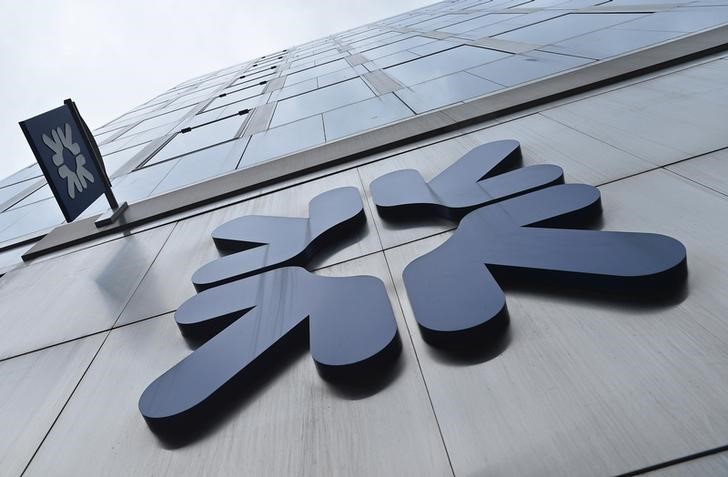By Matt Scuffham and Anjuli Davies
LONDON (Reuters) - Britain could make an initial sale of shares in Royal Bank of Scotland (L:RBS) in September to avoid clashing with the full privatisation of Lloyds Banking Group (L:LLOY) next March, banking and political sources said.
RBS was rescued by the government during the 2007-9 financial crisis at a cost of 45 billion pounds to taxpayers, leaving Britain with an 80 percent stake.
Officials at Britain's finance ministry and UK Financial Investments (UKFI), which manages the stake, are examining the possibility of a first sale of RBS shares in September, the sources said. Bankers say a sale of shares worth between 3 billion and 5 billion pounds is a viable option.
However, no decisions have yet been taken, the sources said.
The government wants initially to sell several billion pounds worth of RBS shares to institutions such as pension funds and insurers to boost liquidity in the stock and make it more attractive to future investors.
"There's going to be an RBS sale quicker than everyone thinks. It may take Lloyds by surprise, because they looked 'next in the queue'," a senior fund manager, who declined to be named, told Reuters.
"The thinking from the Treasury and UKFI is a sale may happen at a loss. UKFI's charter is to maximise value as they see fit. They can't just sit there and wait for 'break-even' or 'above', that might not happen for long time," the fund manager added.
Shares in RBS were up 2.2 percent at 359.7p at 1540 BST, having been down on the day prior to publication of the Reuters story.
LLOYDS CLASH
Officials are aware the move cannot coincide with plans for a final sale of shares in RBS's bailed-out rival Lloyds which will also see billions of pounds worth of shares sold including to retail investors.
Bankers say it would be virtually impossible to attract enough demand for both share sales if they were to coincide.
A September sale of RBS shares had been viewed as too soon by some officials because the bank is still the subject of an investigation in the United States. Analysts expect it will have to pay out billions of dollars in fines to settle claims it misled investors in mortgage-backed securities.
However, it is now being viewed as a realistic option if demand from institutions is strong enough. If the government is not ready in September, it could have to wait another year.
There are only limited "windows of opportunity" for share sales of this nature. The sales cannot take place in the run-up to results announcements and are usually timed to avoid holiday periods such as August and December.
The government is unlikely to start selling RBS shares into the open market through a trading plan as it is currently doing with Lloyds because that would not result in enough shares being sold to increase the stock's liquidity.
Chancellor George Osborne is expected to set out plans for returning RBS to private ownership in his annual speech to financiers in the City of London next Wednesday.
Sources say he may commission an independent review into the process of selling down the government's stake in RBS, which could be led by an institution or high-profile individual.
The review may look at what should be considered to be the break-even price for the shares but the decision on timing will be made by the Treasury in conjunction with UKFI.
The government bought them at an average price of 502 pence. However, the Treasury has said in the past that it would regard 407 pence per share as break-even, taking into account fees it has received from the bank.

At current share prices taxpayers are sitting on a loss of nearly 14 billion pounds against the higher buy-in price.